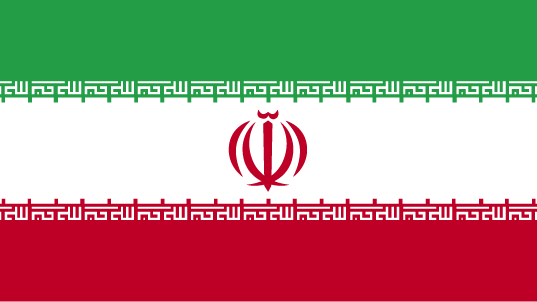Resolution #420
 |
The question of international cooperation in developing renewable energy sources. |
| Committee: Ecology & Environment | |
| Main Submitter: United Arab Emirates | |
| Submitted: 14/02/2025 21:01 |
| Status |
|---|
| Passed cosubmitter sheet validation |
| Approved by approval panel |
| Selected for debate by secretariat |
| Passed by committee (Ecology & Environment) |
| Chosen for debate in General Assembly |
| Passed by General Assembly |
Committee Voting
| For: | 38 |
| Against: | 11 |
| Abstentions: | 4 |
General Assembly Voting
| For: | 35 |
| Against: | 27 |
| Abstentions: | 4 |
Options
Co-submitters
 | Hungary |
 | Peru |
 | France |
 | Malta |
 | Qatar |
 | China |
 | Haiti |
 | Guyana |
 | Spain |
 | Nepal |
 | Belgium |
 | Bangladesh |
 | Iran |
 | Côte D'Ivoire |
 | Egypt |
Resolution
FORUM: The Ecology and Environment
QUESTION OF: International Cooperation in Developing Renewable Energy Sources
SUBMITTED BY: United Arab Emirates
CO-SUBMITTER: Hungary, Peru, France, Malta, Qatar, People's Republic of China, Haiti
THE GENERAL ASSEMBLY,
Alarmed by the urgent need to transition to sustainable energy sources; to combat climate change, reduce greenhouse gases, and promote global energy security,
Recalling the Paris Agreement (2015), the United Nations Sustainable Development Goals (SDGs), particularly Goal 7 (Affordable and Clean Energy) and Goal 13 (Climate Action), and the commitments listed in the United Nations Framework Convention on Climate Change,
Fully alarmed by the fact that The IMF estimates that fossil fuel subsidies cost governments over $7 trillion annually, making it difficult for renewable energy to be an economically attractive solution,
Recognizing the importance of education and training programs to build a skilled workforce capable of advancing renewable energy technologies,
Deeply concerned by the fact that in order for a country to develop renewable energy independently, there is a certain requirement of substantial funding and advanced renewable technology which some countries may lack,
1. Invites all Member States to implement pricing mechanism for carbon emission reduction, such as carbon taxes and cap-and-trade systems for the governments to ensure that the cost of burning coal, gas, or oil reflects its true environmental impact in order to:
a. incentivize businesses and industries to gradually shift towards renewable energy sources
b. make fossil fuels less economically viable
c. reinvest the revenue generated from these taxes into clean energy projects, infrastructure upgrades, and worker retraining programs;
d. develop guidelines for businesses on how to report and reduce their carbon footprints through standardised carbon accounting practices, promoting greater transparency and accountability in emissions reductions,
e. create a phased approach to carbon pricing that gradually increases over time to allow industries to adjust and avoid sudden economic shocks;
2. Calls upon developed nations and international financial institutions to provide funding and technical assistance to developing and small island states to facilitate their transition to renewable energy, by:
a. establishing dedicated financial mechanisms, such as grants, low-interest loans, and green bonds, to support the development of renewable energy infrastructure in developing countries and small island developing states (SIDS)
b. encouraging the expansion of the climate finance initiatives under institutions such as the Green Climate Fund (GCF), the Global Environment Facility (GEF), and the International Renewable Energy Agency (IRENA) to assist vulnerable nations in the building of sustainable energy systems
c. facilitating capacity-building programs that provide technical training, knowledge transfer, and skills of development for local engineers, policymakers, and energy sector professionals in developing nations
d. supporting public-private partnerships (PPPs) that involve multinational corporations, investors, and governments to jointly fund and implement renewable energy projects in low-income and vulnerable regions;
3. Calls for the creation of the International Renewable Energy Cooperation Forum (IREC), which will be funded by the United Nations, will be supervised by The Ecology & Environment, and will be working with International Renewable Energy Agency (IRENA), United Nations Framework Convention on Climate Change (UNFCCC), with the aim of:
a. publishing renewable energy progress report providing an accessible and transparent account of each country’s progress in transitioning to renewable energy sources
b. providing technical assistance and programs for nations that are devoid of substantial funding and advanced renewable technology
c. creating a communication line in order to make the communication between the nations that are shifting to renewable energy sources better and easier;
4. Further suggests all Member States establish national mass media campaigns to raise awareness about the importance of developing renewable energy sources in order to solve the issue in a manner that involves citizens through measures that include but are not limited to:
a. online posts on popular social media platforms that outline:
i. the work being done by the member state to develop renewable energy sources
ii. the work being done by the UN to develop renewable energy sources and how it assists member nations
b. voluntary in-person and online conferences and seminars in order to:
i. ensure direct communication between politicians and citizens
ii. raise awareness about the concerns of citizens among the political landscape
iii. inform citizens about future plans and policies that will be implemented that will affect the citizens population
c. urges this campaign to spread to the international curriculum in all willing and relevant member states, to educate the youth form an early age on the issues and potential of renewable and non renewable energy sources this would include yearly seminars for schools to attend to encourage active participation in the topic from an early age.